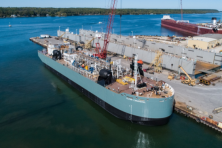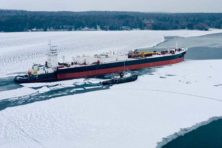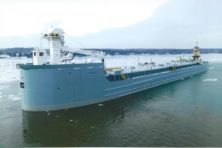Change at the Top: Todd Thayse Retiring from Bay Shipbuilding
- Share
- Tweet
- Pin
- Share
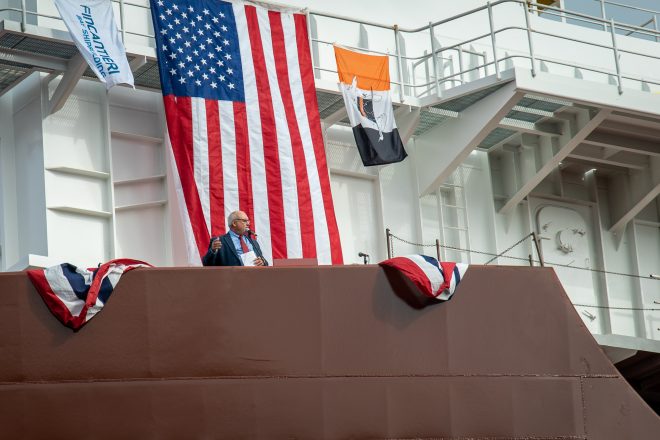
Todd Thayse spent almost 40 years building boats at Bay Shipbuilding
Five days after he turns 60 on Jan. 10, 2022, Todd Thayse will officially retire as Fincantieri’s Bay Shipbuilding (FBS) vice president and general manager. That means no more pre-dawn commutes from southern Door County to the Sturgeon Bay shipyard for the first time in 37 years.
It also means shedding the demands of a job that’s kept him always on call, weighing in, giving advice, mentoring and working with customers.
“I worry about the facilities, is it going to be ready, is it presentable, is it something the customer is going to want, and how do you prepare to go from a completely commercial yard to a Department of Defense yard,” Thayse said.
FBS’s commercial business includes repair and maintenance, construction of new vessels, and the conversion of older boats to highly automated, fuel-efficient, people-friendly vessels. It became a defense contractor last year after the Department of Defense awarded Fincantieri Marinette Marine a $795-million contract to build the first-in-class guided missile frigate. In May of this year, the company was awarded another $553.8 million to build a second one for the U.S. Navy. Fincantieri sank $26 million into the FBS shipyard in preparation for the shipbuilder’s role.
Thayse said one of the job’s greatest demands is the care and custody of a workforce that clocks in as Door County’s largest, with upwards of 1,000 people currently who construct, repair and retrofit floating cities fully supportive of some 30 people.
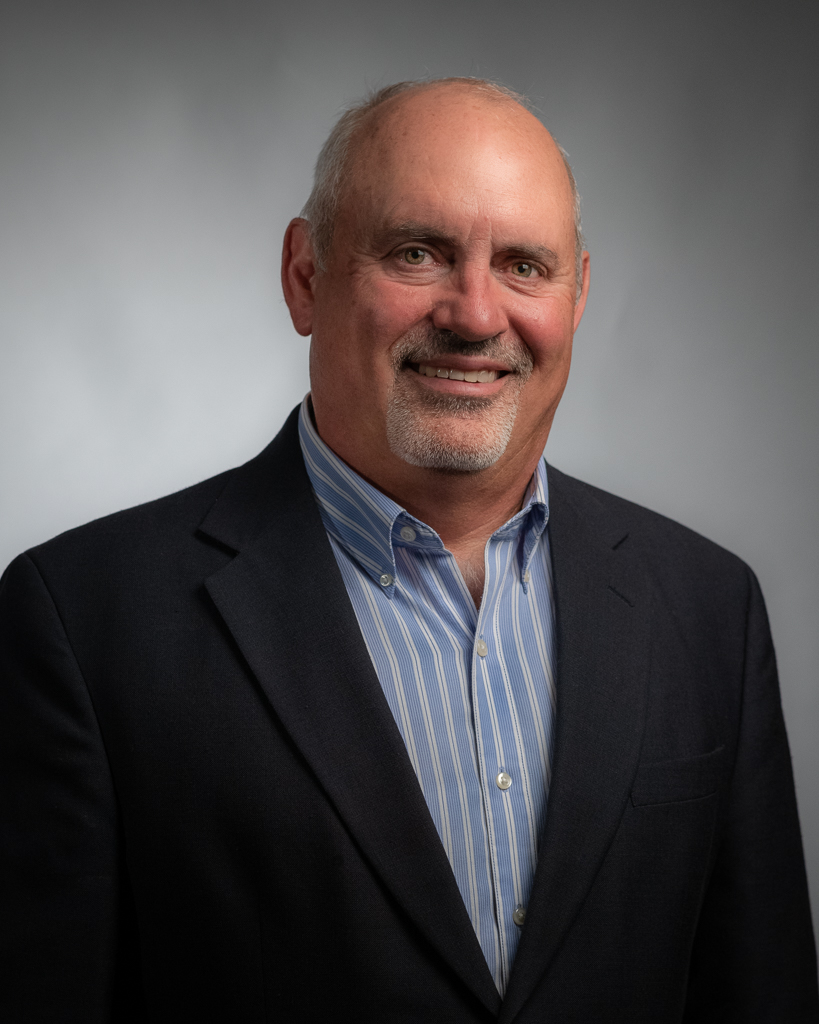
“They are really what makes Bay Shipbuilding,” he said. “Oftentimes folks will say it’s like a family and I think that’s particularly true for us. We’re a close-knit community.”
In part, Thayse can quantify his contribution to the company’s success by the hulls built during his time at the helm. When he took over the yard in 2012, they were building hull 771. In October, they signed a contract for hull 792.
“Signing and delivering some 20 boats during the 10 years I’ve been vice president/general manager is something I’m very proud of,” he said.
Thayse announced his retirement from FBS in October and is remaining aboard to assure a smooth transition for his successor, Gulf-coast shipyard professional Craig Perciavalle.
Perciavalle came from Alabama after serving for years as president of Austal USA in Mobile.
Thayse’s route to that position has become increasingly less traditional, the self-made stuff of an American dream that seems all but vanished today. He grew up on a dairy farm in the little Town of Lincoln in Kewaunee County and took a position with Bay Shipbuilding in May 1985. His credentials back then were a high school diploma from Casco Luxemburg High School and a few years experience with Peterson Builders.
“I came to Sturgeon Bay for a job and I’m leaving 30 years later with a career,” he said.
He started in the sheet metal shop, a boilermaker in the Boilermaker’s Union, learning about the multiple tools, machines and blueprints involved in fitting the plates and shapes that make up the structure of a ship. He was hooked.
“Seeing a vessel that you worked on for two years, three years, take its final voyage from the shipyard and head out to do its business in Florida or the Gulf of Mexico or maybe up to Duluth, Minnesota, or wherever it may be – it’s particularly rewarding to watch that and know how much everyone at 605 N. Third Avenue has done to make that vessel what it is today,” he said.
A year-and-a-half later, he was running the sheet metal shop in charge of about 75 people, proving he had what it took to wear the white-colored hard hat that separates managers and crew leaders from the rest of the workers.
“It seems whatever I’m involved in it’s usually in a leadership role and sometimes that’s a bad thing and sometimes that’s a good thing,” he said.
Thayse has a direct, confident manner that gives off an air of no-nonsense authority and efficiency. That extends to his explanation of his rise within the company.
“I was standing around in the right place at the right time enough times to have moved up the ladder,” he said. “We had opportunities in front of us and I was able to take them.”
In 1991, he began working in the repair side of the business and found a mentor in Pat O’Hern, former FBS vice president and general manager.
“I really had the good fortune of having some great mentors,” Thayse said. “At that time we had an extremely seasoned management group and I learned a lot.”
He’s ridden the waves for almost four decades now of an often turbulent maritime construction industry that rises and falls on market factors, world trade, oil prices and economic or political stability.
“I’ve seen us at 2,000 people being employed, I’ve seen us at four people being employed,” he said.
Those difficult times came in the late 1980s, early 1990s when no commercial boats were being built on the Great Lakes and the Sturgeon Bay shipyard survived on the maintenance work trickling into the yard. But FSB persisted, building itself into a shipbuilding force one tug and barge at a time, in dogged pursuit of contracts for non-Great Lakes customers who needed convincing that a little Wisconsin cold and snow didn’t matter when it came to building ships.
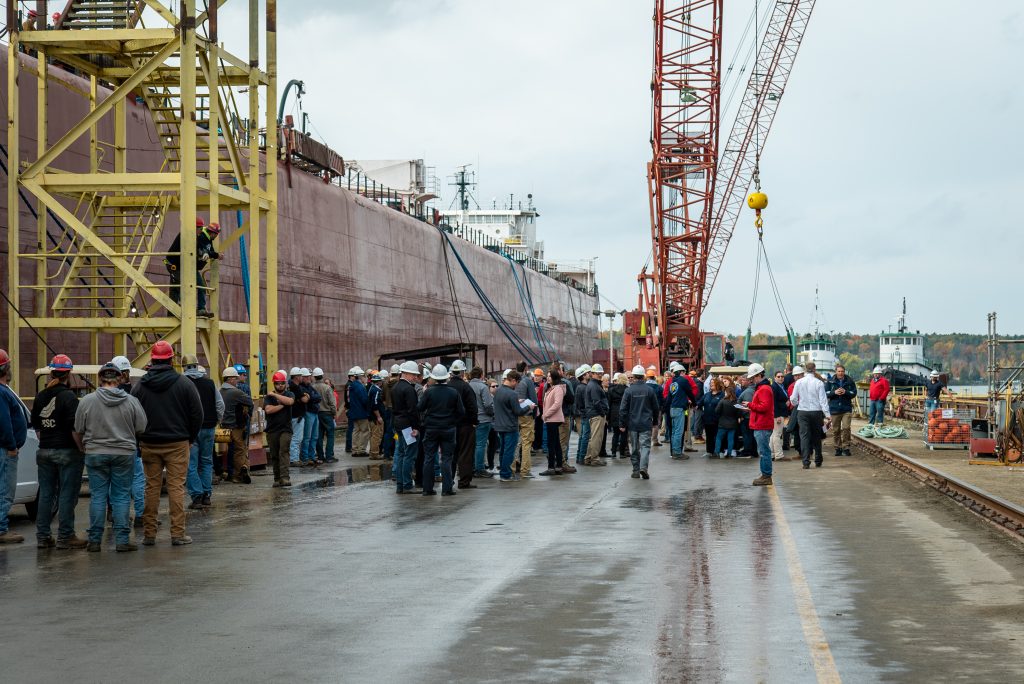
“You have a couple cold days and you just keep building boats,” Thayse said. “That’s what separated us and distinguished us as a competitor, and a formidable competitor.”
When Italian company Fincantieri bought the Manitowoc Company’s marine segment in 2009, which included Marinette Marine and Bay Shipbuilding, Thayse was running the repair and maintenance side of the FBS business, a segment he said that’s grown from $7 million to north of $50 million annually. The change of ownership brought challenges to those with “Manitowoc blood in our veins,” Thayse said. At the same time, the company invested more in the Sturgeon Bay yard than “probably anyone would have.” Three years later, Thayse was asked to step into the top spot.
Thayse speaks quickly and bluntly but when asked about some of the challenges he faced over the years, there’s a rare pause. He exhales. He drums his hands upon the table and is silent for a good 10 seconds before answering.
“Having a significant manufacturing facility smack-dab in the middle of this beautiful city is a challenge,” he said. “Folks that are migrating into the community and as neighbors are not necessarily employees of the yard and they look at us as a heavy industrial setting that’s right smack-dab in their waterfront community.”
Once he retires, Thayse will continue to play an advisory role within Fincantieri Marine Group, the corporate entity headquartered in Washington D.C. that oversees FBS. He’s also serving his first term on the Door County Board of Supervisors representing District 2 that covers part of the Town of Brussels, some of the Town of Forestville and the unincorporated areas of Maplewood and Kohlberg. In that, he’s following in the footsteps of his father who served on the Kewaunee County Board of Supervisors for 28 years.
“I always said to myself I’d like to do that when my career would allow,” he said.
His family consists of wife, Deb, their three grown children and their eight grandchildren, all who live within two and 20 minutes of them in the Town of Forestville about 80 acres north of the Door/Kewaunee line.
“I’ve got a lot of things I want to do other than building boats,” he said, including growing Christmas trees and making maple syrup, something the family is already doing and wants to officially expand upon. “And then spend some time at home with my wife and family. This business is very demanding, you’re on the road a lot, you travel a lot, you have a lot of long days and I don’t want to miss much anymore.”


